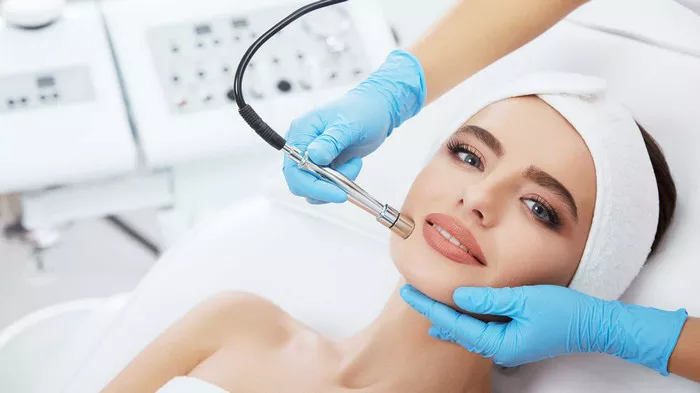Microdermabrasion is a popular cosmetic procedure that is used to improve the appearance of the skin. This non-invasive treatment involves the use of a special tool to exfoliate the outer layer of the skin, which can help reduce the appearance of fine lines, wrinkles, acne scars, and other imperfections. One of the claims made about microdermabrasion is that it can help build collagen, a protein that is essential for maintaining the skin’s elasticity and firmness. In this article, we will explore the question of whether microdermabrasion really does build collagen and what scientific evidence supports this claim.
What is Collagen?
Collagen is a protein that is found throughout the body, including the skin, bones, and connective tissues. In the skin, collagen is responsible for maintaining the skin’s elasticity and firmness. As we age, the production of collagen in the skin decreases, leading to the formation of fine lines, wrinkles, and other signs of aging. This has led to the development of many cosmetic procedures and skincare products that claim to boost collagen production and improve the appearance of the skin.
How Does Microdermabrasion Work?
Microdermabrasion works by using a special tool to exfoliate the outer layer of the skin. This tool typically uses tiny crystals or a diamond-tipped wand to remove the dead skin cells that make up the outermost layer of the skin. By removing these dead skin cells, microdermabrasion can help reveal the healthy, smooth, and radiant skin that lies beneath.
In addition to removing dead skin cells, microdermabrasion can also stimulate collagen production. When the outer layer of the skin is removed, it sends a signal to the body to produce more collagen in the affected area. This, in turn, can help improve the appearance of fine lines, wrinkles, and other signs of aging.
What Does the Research Say About Microdermabrasion and Collagen?
While there is some evidence to suggest that microdermabrasion can stimulate collagen production, the research in this area is limited and inconclusive. One study published in the Journal of Cosmetic and Laser Therapy found that microdermabrasion can stimulate the production of collagen and elastin in the skin. However, the study only included a small number of participants and did not include a control group, which limits the reliability of the results.
Another study published in the Journal of Dermatological Treatment found that microdermabrasion can improve the appearance of fine lines and wrinkles by stimulating collagen production. However, the study only included 20 participants and did not include a control group, which again limits the reliability of the results.
Despite these limitations, many skincare professionals and individuals who have undergone microdermabrasion report seeing improvements in the appearance of their skin, including a reduction in fine lines and wrinkles. While the scientific evidence is not yet conclusive, the anecdotal evidence suggests that microdermabrasion may be an effective way to stimulate collagen production and improve the appearance of the skin.
Other Factors That Affect Collagen Production
While microdermabrasion may be one way to stimulate collagen production, there are other factors that can also affect the production of this important protein. One of the most significant factors is sun exposure. UV radiation from the sun can damage collagen fibers in the skin, leading to a decrease in collagen production and the formation of fine lines, wrinkles, and other signs of aging.
Other factors that can affect collagen production include smoking, pollution, and poor nutrition. Smoking can damage collagen fibers in the skin, while pollution can cause oxidative stress that can also damage collagen. Poor nutrition, particularly a diet that is low in protein and antioxidants, can also contribute to a decrease in collagen production.
Conclusion
While the scientific evidence is not yet conclusive, there is some evidence to suggest that microdermabrasion can stimulate collagen production and improve the appearance of the skin. However, it is important to note that there are many factors that can affect collagen production, including sun exposure, smoking, pollution, and poor nutrition. If you are interested in microdermabrasion as a way to improve the appearance of your skin, be sure to consult with a qualified skincare professional to determine if this procedure is right for you. Additionally, it is important to practice good skincare habits, such as wearing sunscreen and following a healthy diet, to help support collagen production and maintain the health and appearance of your skin.


